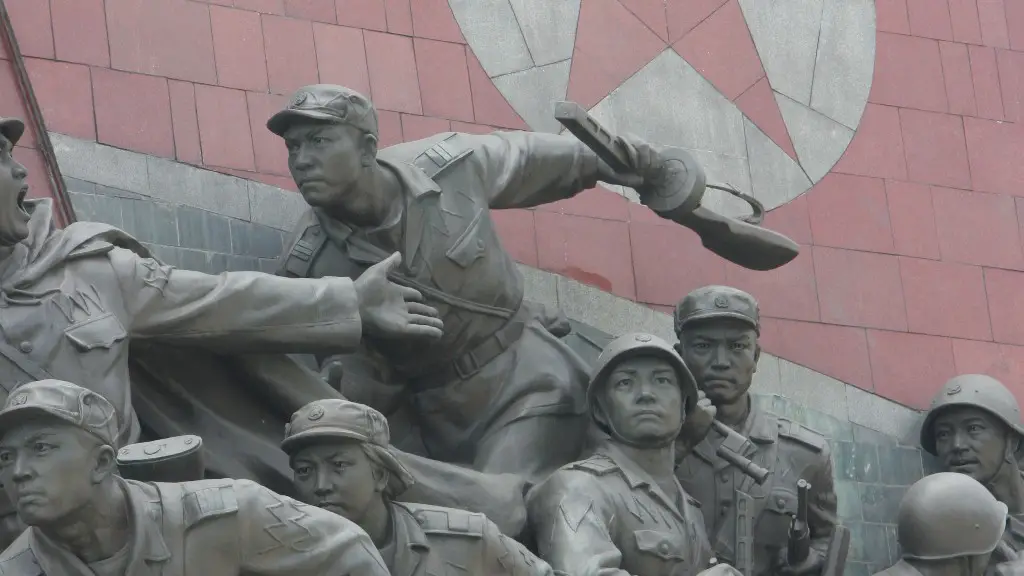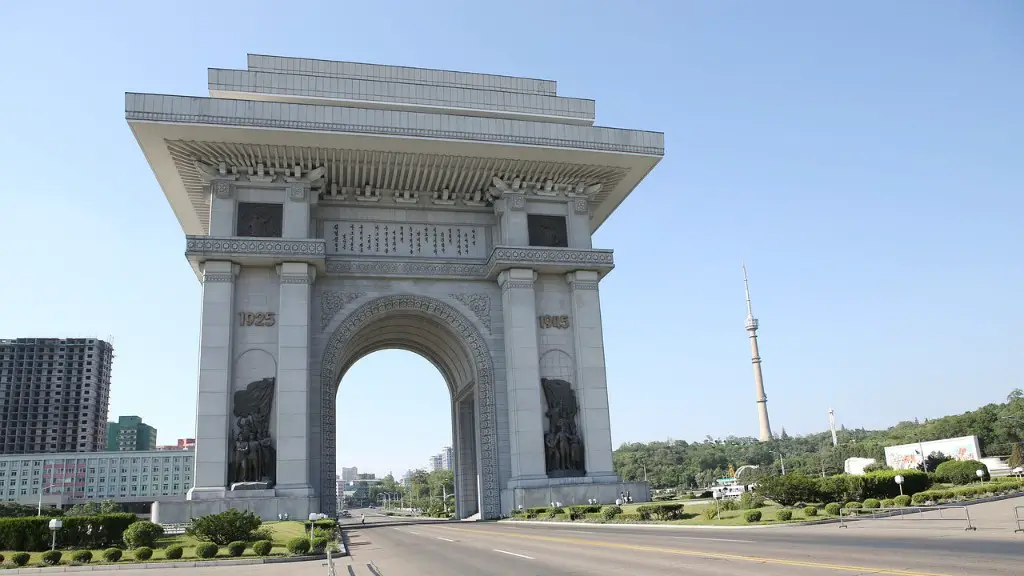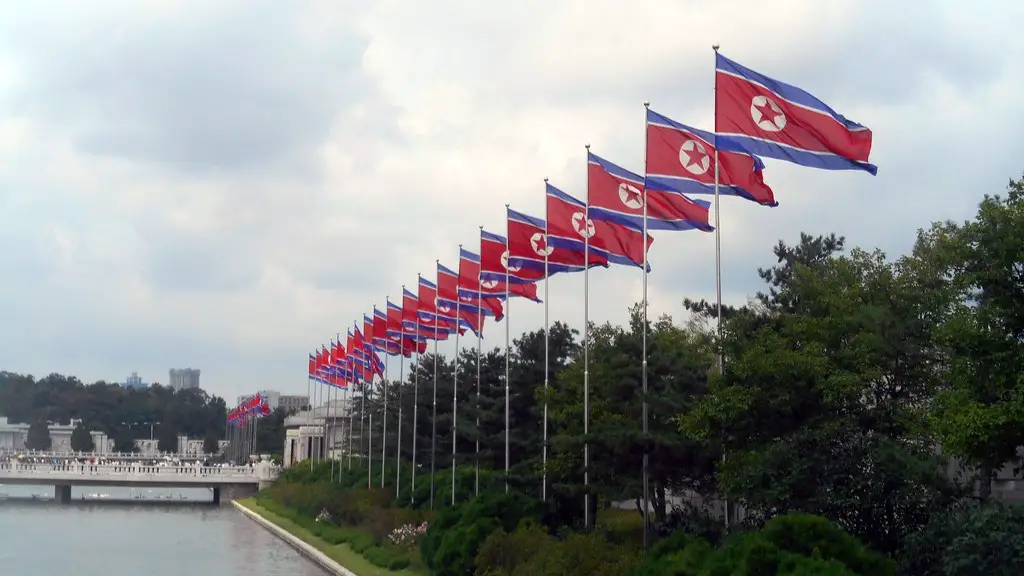The nature of global politics typically is conducted through discussions, negotiations, and treaties. Increasingly, though, one of the main means of coercion has become sanctions, which are imposed by one state onto another as a means to change their behaviour. This has become particularly pertinent in relation to North Korea, as the international community has resorted to sanctions on North Korea more than any other country in the world in order to try to put curbs on their nuclear ambitions and human rights abuses.
Sanctions are not a new phenomenon, and a range of international actors have exercised sanctions on North Korea in the past. This includes the UN Security Council (UNSC), the US government, and several regional actors such as Japan, South Korea and the European Union. Despite this, North Korea has continued to defy the international community, and it is unclear as to what extent the various sanctions levied against them have been effective at changing their behaviour.
The sanctions imposed upon North Korea have been wide-reaching, and have included economic, intellctual property, and travel restrictions. In recent times, there have been efforts by the international community to further limit North Korea’s access to petroleum as well as banning exports of coal, iron, and textiles from North Korea to other countries. It is estimated that these sanctions have had a significant impact on North Korea’s economy, with the nation’s GDP taking a hit particularly in 2017 and 2018.
Still, the effectiveness of these sanctions is questionable, and a number of experts have argued that stronger US-led sanctions are necessary in order to cause North Korea to change its behaviour. For example, in a recent study by the Washington-based Centre for Strategic and International Studies, two experts have argued that the current sanctions have done little to curb North Korea’s nuclear ambitions, and have even less of an effect on their human rights abuses.
It is not only sanctions that have been employed against North Korea, but also diplomacy. Diplomatic pressure has been applied to North Korea in the form of negotiations, treaties and incentives, all aimed at getting North Korea to abandon their nuclear weapons program and abiding by international law and norms. This diplomatic pressure was seen most recently in the 2018 US-North Korea summit, in which US President Donald Trump and North Korean leader Kim Jong Un met for the first time in an attempt to bring about a resolution to the decades-long conflict.
It is difficult to be able to ascertain precisely what impact the various sanctions and diplomatic offerings have had upon North Korea. Even if the sanctions have had some effect, it has been limited. The most significant impact of the sanctions and diplomatic initiatives has been to keep the conflict mostly peaceful, and to keep the region stable. This has also been helped by the increased diplomatic engagement of regional powers like South Korea and Japan, both of whom have adopted a more conciliatory approach to North Korea in recent years.
Continued Impact
The impact of the sanctions and diplomatic engagements has been felt not only by North Korea, but also by their neighbours. For example, South Korea has seen an increase in tourism from North Korea and trade ties between them are stronger than ever. Japan, too, has tried to thaw relations with North Korea and has even gone as far to call for North Korea’s exclusion from the international sanctions regime.
The sanctions regime has also had an effect on the US’s relationship with North Korea. While the US and North Korean leaders have met face-to-face, and there have been steps taken towards a peace deal, these have not yielded significant results. Furthermore, the US has continued to maintain its economic sanctions on North Korea, and the relationship between the two countries remains fragile.
Overall, the impact of the sanctions and diplomatic efforts have been mixed. It is clear that the sanctions have had an economic impact on North Korea, but it is unclear whether they have had any effect on the country’s nuclear ambitions or human rights record. Similarly, the diplomatic initiatives have generated some goodwill between North Korea and its neighbours, but it remains to be seen whether any lasting solutions can be achieved.
Effects on Negotiations
The sanctions imposed on North Korea have had an effect on the negotiations between North Korea and the US. In particular, the US has used its economic sanctions as leverage in the negotiations, hoping to pressure North Korea into making concessions. This has led to North Korea attempting to seek a more balanced negotiation process, in which the US is seen to be offering something in return for North Korea’s commitment to abandon its nuclear weapons programme. The US has thus far refused to do this, and the negotiations have been suspended as a result.
The lack of progress in negotiations has been attributed to the lack of flexibility on both sides, with each side unwilling to budge. It appears that the US’s economic sanctions have been a key factor in this, as North Korea has viewed the sanctions as a major obstacle to progress. This has led to North Korea calling for the US to ease the sanctions in order to create a more balanced negotiation process, and as such, it appears that the sanctions have had a direct effect on the negotiations.
The US, however, has been unwilling to ease the sanctions, citing their importance in pressuring North Korea to change its behaviour. This has created a deadlock in the negotiations, with neither side willing to compromise. It is therefore clear that the sanctions have had an effect on the negotiations, with both sides using them as leverage in order to try to get the best deal possible.
Implications for Global Powers
The sanctions imposed on North Korea have also had implications for global powers. In particular, the US and China have been the two main actors in trying to bring about a resolution to the North Korea conflict. China, in particular, has been an important ally of North Korea, and has used its influence in the region to try to limit the impact of the sanctions. This has resulted in China providing North Korea with economic assistance and diplomatic support, in spite of the US sanctions.
The US, on the other hand, has continued to maintain its sanctions and has tried to apply diplomatic pressure on China to limit its economic and diplomatic relationship with North Korea. This has caused tensions between the US and China, with the two countries trading barbs in the UN Security Council and other international forums. It is clear, then, that the US sanctions have had a significant impact on relations between the US and China, with their respective strategies towards North Korea becoming increasingly divergent.
The US’s strategy has also had an impact on other global powers, particularly in terms of the perception that the US is seeking to impose its will onto other countries. This has been particularly pertinent in relation to North Korea, with some countries seeing the US’s approach as an act of aggression and an imposition of their own interests onto North Korea. This, in turn, has led to tensions between the US and other countries, and possibly deterred them from supporting the US-led sanctions regime.
Conclusion of Sanctions
The sanctions imposed on North Korea have had a wide-reaching impact, both on North Korea and its neighbours, as well as on the US and other global powers. The sanctions have had an economic impact on North Korea, with their economy shrinking as a result. They have also had an impact on North Korea’s diplomatic ties, with the US refusing to ease their sanctions in exchange for concessions from North Korea. However, the most significant impact of the sanctions has been on the US and China’s respective strategies towards North Korea, with their strategies becoming increasingly divergent.
Finally, the sanctions have had implications for the region as a whole, with some countries becoming increasingly concerned about the US placing pressure on North Korea. It is clear, then, that the sanctions have had a significant impact on North Korea and its neighbours, as well as on the US and other global powers. It remains to be seen what the ultimate outcome of the sanctions will be, but it is clear that their impact has been far-reaching and has caused tensions between countries in the region.
Impact on Humanitarian Aid
The sanctions are also having a significant effect on the North Korean population, as the strict economic measures make it difficult for North Koreans to purchase everyday goods, medical supplies, and food. These sanctions were not intended to be a punishment for the North Korean people, but the reality is that they are bearing a significant amount of the burden of the sanctions. Additionally, the lack of economic opportunity has led to a rise in poverty and a decrease in the standard of living.
The international community has attempted to provide some relief to the North Korean people in the form of humanitarian aid. The economic sanctions prevent the delivery of much needed goods and supplies, so many countries have resorted to sending aid to North Korea in the form of food, medicine, and other goods. This aid is typically distributed through organizations that are approved by the UN, such as the World Food Programme.
Despite these efforts, the UN estimates that over 10 million North Koreans face food insecurity, and that the economic sanctions have had a negative effect on the country’s food production. Additionally, the North Korean government has also failed to provide adequate healthcare to its citizens, and many North Koreans are unable to access lifesaving medicines and treatments due to the sanctions.
The sanctions have thus had a serious impact on the North Korean people, with the effects being felt across the country. The international community has attempted to provide relief to those affected, but it is clear that the effects of the sanctions are still being felt by the North Korean people, who continue to suffer from poverty, food insecurity, and a lack of basic medical supplies.
International Responses
The international community has been divided in its response to the sanctions imposed on North Korea. On one hand, some countries have expressed concern that the sanctions have been too harsh, and have targeted the North Korean people rather than the country’s leadership. On the other hand, some countries have argued that the sanctions are necessary in order to pressure North Korea into abiding by international law and norms.
The US, in particular, has been one of the most vehement advocates of the sanctions, arguing that they are necessary to force North Korea to change its behaviour. This stance has been widely criticized, with some arguing that the US has become too aggressive in its attempts to force North Korea to change its policies. Additionally, the US has been accused of exacerbating the humanitarian crisis in North Korea, as their economic sanctions have made it difficult for much needed goods and supplies to be delivered to the North Korean people.
The European Union, in contrast, has been more cautious in its approach to North Korea, choosing to focus more on diplomatic negotiations and international lobbying. The EU has expressed a desire to try to bring about a peaceful resolution to the conflict, and has thus far avoided imposing economic sanctions on North Korea.
It is clear, then, that responses to the sanctions have been mixed. While some countries have expressed concern that the sanctions have gone too far, others have argued that they are necessary in order to pressure North Korea into changing its behaviour. It is up to the international community





